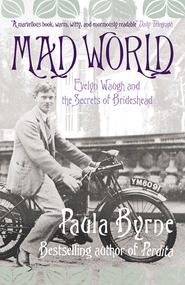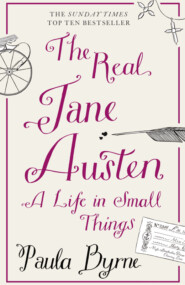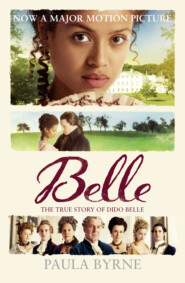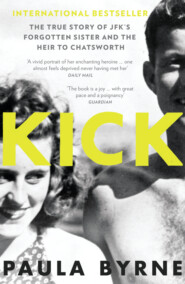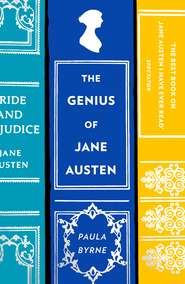По всем вопросам обращайтесь на: info@litportal.ru
(©) 2003-2024.
✖
Perdita: The Life of Mary Robinson
Настройки чтения
Размер шрифта
Высота строк
Поля
Despite his sordid profession as a moneylender, King had a reputation as a man of culture. John Taylor, an oculist who moved in the very best circles and who was himself a poet and a friend of Mary Robinson, recorded in his memoirs that he had known King for forty years and always found him honourable, hospitable, and attentive, and that he especially liked having men and women of talent at his table.
(#litres_trial_promo)
Mary’s letter accords with this image: King is presented as a companion for theatregoing and literary talk, associated with poetry and the language of sensibility. The reference to her own efforts at poetry suggests that, with her stage debut forestalled by her marriage, she is already thinking of a literary career. Robinson, meanwhile, is anything but a sensitive literary man: he is a ‘stupid Thing’ and Mary effectively admits that she only married him because of his supposed financial prospects. Because of his deception on this front, he has forfeited any right to strict conjugal loyalty.
For King, this was sufficient encouragement. His reply brings him to a pitch of excitement:
I will not think you sincere, when you say you love; yet if you are not in earnest, you have given too serious a Testimony of it for one only in Joke; but it is almost Blasphemy to suspect one of such heavenly Form, so beautiful, such Symmetry of Features, such delicate welformed [sic] Limbs, such panting snowy Breasts, such – Oh! What Raptures ineffable seize my delighted Imagination, when I recollect the delirious Transports that throbbed to my very Soul, when that beauteous Form stood confessed in all the resistless Power of – Nakedness. I must stop till my enraptured Fancy returns from the ecstatick Thought.
Is this a ripe fantasy or had he really caught a glimpse of a naked Mary in Oxford or on some other occasion?
With the flirtation getting this far out of hand, Mary cooled the temperature in her following letter – though she still needed to keep King sweet, because she was, as she put it in a postscript, ‘rather short’. The correspondence had by now lasted for a month. On 1 November, King wrote with further references to ‘the mystick Meaning of thy wanton Love’ and his ‘melting Senses’ drowning in ‘delicious Transports’, while at the same time delivering a rebuke: ‘You little Prodigal, you have spent £200 in Six Weeks: I will not answer your Drafts.’ King’s refusal to forward any more funds, despite a further request, brought the correspondence to an abrupt end in the final week of November. Mary’s last letter is in a very different tone from the preceding ones:
I Find you have not yet answered my Draft. I do not wish an Acquaintance with any Man who professes so much Love, but who gives so little Proof of it. I wish I could recall those imprudent Moments when I suffered your deluding Promises, and seductive Tongue, to betray me into Sin; but unless you give me the Token of your Sincerity that I ask for, I will take care how I trust you again. I am astonished that you should scruple to lend me such a Sum as £100 when it was the last I should borrow, and should have repaid it faithfully. Now you have an Opportunity of shewing your Love, or I shall see that you have all along deceived me.
King responded with a long and vitriolic letter on the evils of ambition and avarice, and the correspondence ended. His failure to recover either his original loan or his subsequent advances, together with a not unjustifiable sense of having been taken for a ride by Mary’s flirtatious manner, accounts for his action in publishing the letters in 1781. There is no evidence that King himself had any further dealings with Mary thereafter, though by a curious twist his daughter became a passionate fan of her poetry.
(#ulink_78f8a1b8-3706-5a24-9ffa-7ffe8a37a532)
Late in November, Robinson returned to Bristol to fetch his wife. They left Hester and headed across to Wales. They endured a hazardous crossing at Chepstow in an open boat in the midst of a fierce storm. In the Memoirs, Mary novelistically interprets this as an ill omen, akin to the storm that coincided with her birth. Throughout the journey Robinson tried to prepare his refined young wife for her first meeting with his family. Still denying that Harris was his father, he asked Mary to ‘overlook anything harsh that might appear in the manners of his uncle’. But she was busy absorbing the beauties of the landscape as they drove into the remote Welsh countryside: ‘We passed through a thick wood, the mountains at every brake meeting our eyes covered with thin clouds, and rising in a sublime altitude above the valley. A more romantic space of scenery never met the human eye!’
(#litres_trial_promo)
With a shift of tone typical of Mary’s mercurial nature, the narrative of her visit to the in-laws then turns from romantic novel to comedy of high and low life, with the sophisticated townies meeting the country bumpkins. Mary was fabulously dressed, as usual, in a dark claret riding habit and a white beaver hat trimmed with feathers. She looked askance at the odd couple that waited to greet her, her father-in-law, Thomas Harris, and his daughter, Elizabeth. Harris, evidently pleased with the elegant Mrs Robinson, kissed her ‘with excessive cordiality’, while his daughter led her into the house ‘with cold formality’. ‘She could not have taken my hand with a more frigid demeanour,’ Mary adds, clearly relishing the memory.
(#litres_trial_promo)
The young women sized one another up. Elizabeth was not a great beauty and must have felt threatened by her brother’s fashionable wife. She was cold and haughty and took an instant dislike to her new sister-in-law. To Mary’s sharp eyes, she looked a fright. Elizabeth seemed older than her twenty years, moved stiffly, without grace or elegance, and was short and clumsy looking. She had a rustic face with a snub, upturned nose, and cheeks ‘somewhat more ruddy than was consistent with even good health’.
(#litres_trial_promo) Her countenance, Mary thought, was ‘peculiarly formed for the expression of sarcastic vulgarity’. The elegantly dressed Mrs Robinson was equally appalled by Elizabeth’s vulgar attire; she wore a cheap gaudy chintz gown and a ‘thrice-bordered cap’ decked with a profusion of ribbons. Her initial impression of retired tailor Thomas Harris was just as dismaying: he wore an unfashionable brown fustian coat, a scarlet waistcoat trimmed with gold, a gold-laced hat, and – instead of the silk stockings that befitted a gentleman – a hideous pair of woollen ‘spatter-dashes’. He cuts an engagingly comic figure, his manners coarse and boorish, but kind of heart – the very embodiment of Squire Western in Fielding’s Tom Jones or Goldsmith’s Mr Hardcastle in She Stoops to Conquer.
Harris was, in fact, an influential figure in Glamorganshire. He was the squire of two large estates, Tregunter and Trevecca, and was a Justice of the Peace. One of his brothers was Howel Harris, a well-known Methodist reformer. Possibly through his brother’s influence, the religious reformer Selina Hastings, Countess of Huntingdon, had established a seminary at Trevecca House for the training of ministers. Elizabeth Robinson was a convert to Lady Huntingdon’s ‘sect’, and sometimes took Mary with her to Trevecca. Squire Harris preferred the local church where he could throw his weight around and fine the rustics for swearing, even though ‘every third sentence he uttered was attended by an oath that made his hearers shudder’.
(#litres_trial_promo) Harris spent most of the days on his estate, riding his small Welsh pony, only appearing at meal times.
Mary was thoroughly bored by her husband’s family. She quickly discovered that the real ruler of the household was Molly Edwards, the housekeeper. She heartily disliked her: ‘a more overbearing, vindictive spirit never inhabited the heart of mortal than that which pervaded the soul of the ill-natured Mrs Molly’.
(#litres_trial_promo) Miss Betsy and Mrs Molly were jealous of Mary, who supped ale with the squire and soon became his favourite: ‘They observed me with jealous eyes; they considered me as an interloper, whose manners attracted Mr Harris’s esteem, and who was likely to diminish their divided influence in the family.’
(#litres_trial_promo)
Mary often alienated other young women, who were left feeling dowdy and dull in her presence. She was naturally flirtatious and men were captivated by her charm, but she was perhaps less keen to cultivate the friendship of other women, if she did not think it worth her time. She noticed the ‘side-long glances’ of Miss Betsy and Mrs Molly when she entertained visitors who praised her ‘good looks, or taste in the choice of my dresses’. The women taunted her for acting like a duchess with her fine clothes and her accomplishments – ‘a good housewife had no occasion for harpsichords and books’.
(#litres_trial_promo) They reminded her that she had no money to support her fancy ways. But Mary did not care. She had her beauty and her elegance and her humour to protect her. When she went riding with Miss Betsy, she laughed at her odd appearance: ‘Miss Robinson rode on horseback in a camlet safe-guard, with a high-crowned bonnet. I wore a fashionable habit, and looked like something human.’
(#litres_trial_promo)
More disturbingly, Harris seemed to have fallen in love with her even though in his sixties he was old enough to be her grandfather. When he declared that he should ‘have liked me for a wife, had I not married Tom’, she decided it would be prudent to leave. She feared that ‘through the machinations of Miss Betsy and Mrs Molly I should lose the share I had gained in his affections’. Betsy and Molly were duly furious when the squire insisted upon accompanying Mary to Bristol: ‘he swore that he would see me safe across the Channel, whatever might be the consequences of his journey’.
(#litres_trial_promo)
In Bristol, meeting the charming Hester and getting a taste of her active social life, Harris decided to stay a while. Hester introduced him to her friends and he was invited to several dinner parties. Mary danced with him and, after he had supped his evening draught, she would sing to him. He was flattered by the attention and dropped hints to the effect that Tom would inherit the estate. He asked for advice on refurbishments for Tregunter House, and together they picked out smart marble chimney-pieces: ‘Choose them as you like them, Mrs Robinson, for they are all for you and Tom when I am no more.’
(#litres_trial_promo)
(#ulink_296888a7-cba2-5736-8ac0-4640a6dc00c0)He later changed his name to Hanway Hanway. He was related to philanthropist Jonas Hanway, who campaigned against boy chimney sweeps and was one of the first men to carry an umbrella.
(#ulink_8a58abc3-8622-5221-beae-9d058652147f)He later changed his name to Hanway Hanway. He was related to philanthropist Jonas Hanway, who campaigned against boy chimney sweeps and was one of the first men to carry an umbrella.
CHAPTER 4 Infidelity (#ulink_0bb91965-ad58-5a9e-a9df-37ed745ffd2e)
The town still full of alluring scenes, faro tables, assemblies, to say nothing of Ranelagh, the opening beauties of Kensington, and the morning lounge of St James’s street.
Mary Robinson, The Widow
We are taught to cherish deceit, indifference, vanity, contempt, and scorn; we cannot bear neglect, because it awakens our self-love; we think not of the natural fickleness of man; but we tremble, lest the world should suppose, that a husband’s infidelity proceeds from our own want of attractions to hold him faithful.
Mary Robinson, The False Friend
As soon as Harris had left Bristol, the Robinsons set out for London. According to Mary, they adopted young George Darby and brought him up as their own, until he was old enough to be sent abroad to a merchant house, like his elder brother, John. Elated by the great expectations that Harris had held out for them, the Robinsons threw themselves into London life. The first step they took was to move to a newly built house in Hatton Garden, a location in the ‘city’ at the east end of London as opposed to the more fashionable ‘town’ (or ton) in the west end. Close to Smithfield Market and St Paul’s, the Hatton Garden district was home to newly prosperous merchants and Jewish moneylenders, jewellers, and lawyers – it was conveniently placed for the Inns of Court.
The Robinsons furnished their new property lavishly and bought a phaeton, the modish open-top carriage that was the same kind of status symbol as a modern convertible. Thomas Robinson also got to know the local jewellers and silversmiths. He bought his wife an expensive watch, enamelled with musical trophies.
From where did they get the money? In her Memoirs Mary claimed ignorance about her husband’s financial affairs and debts (which she always described as his debts rather than hers), but according to King she devised a scheme – played out by Robinson and a group of fellow swindlers – that involved raising ‘immense Quantities of Goods on the Credit of foreign Letters, which they had transmitted them for the Purpose, from Holland, Ostend and France’.
(#litres_trial_promo) Whatever the truth of this allegation, the handsome house in Hatton Garden would have been enough to persuade traders and lenders that the Robinsons’ credit was good.
With a smart address, a flashy phaeton, and Mary’s dazzling good looks, they burst upon the social scene, determined to get themselves noticed. Mary knew how to use her sex appeal: ‘A new face, a young person dressed with peculiar but simple elegance, was sure to attract attention at places of public entertainment.’
(#litres_trial_promo) She describes her entrance into society as making her debut ‘in the broad hemisphere of fashionable folly’. She might have lost her chance to perform at Drury Lane, but she saw the metropolis as a great urban stage where she could still be a star.
Her first stop was the pleasure gardens at Ranelagh. Pleasure gardens ranked high in London’s recreational activities, but the two most popular were those of Ranelagh in Chelsea and Vauxhall in Lambeth. Here, in the open air, people gathered to stroll, chat, and listen to music. By day they could walk amongst the grottoes, groves, and waterfalls, and by night look at the brilliant lights strewn in the trees, attend concerts, balls and masquerades, and see the fireworks. Ranelagh was the classier venue: at two shillings and sixpence, its entrance fee was more than twice that of raucous Vauxhall. It had Chinese buildings, temples, statues, a canal, and a bridge. It also boasted the rotunda, an enormous circular hall for concerts, ringed with fifty-two boxes. An orchestra played whilst the ladies and gentlemen strolled around the main floor. Regular concerts were held in the summer; the 8-year-old Mozart performed there in 1764. After the concert, one would sit and eat a light supper. It was a place to be noticed and to join the smart set. The royal princes were known to frequent the pleasure gardens with their aristocratic friends. Women of fashion promenaded the main walks to show off their latest gowns and hats, and to make a stir. Prostitutes, dressed in their finery, plied their trade in the wooded groves. In Fanny Burney’s novel Evelina, the innocent heroine mistakes the Ranelagh prostitutes for ladies of fashion and is herself mistaken for a whore when she wanders onto a wrong path.
Mary chose her outfit carefully. She wore a simple Quaker-style, light brown silk dress, with close cuffs. Breaking with the convention of powdering her hair, she perched a plain round cap and a white chip hat on her tumbling auburn locks. She wore no other accessories – no jewellery and no ornaments. She was simplicity itself. Never one to follow fashion slavishly, she had confidence in her individual style and panache. Needless to say, she cut a figure: all eyes were fixed upon her.
The Robinsons’ next outing was to the indoor equivalent of Ranelagh, the Pantheon in Oxford Street. It had only opened a couple of years before, when it was described by Charles Burney as the ‘most elegant structure in Europe, if not on the globe’.
(#litres_trial_promo) In the main it was a musical venue, housing concerts, balls, masquerades, and dances. It also had a central rotunda where visitors could play cards or take supper on ordinary evenings. Tickets for masquerades were expensive and exclusive: by subscription only, at two guineas (the equivalent of about a hundred pounds in today’s money). Mary described it as ‘the most fashionable assemblage of the gay and the distinguished’. As though at court, visitors dressed formally in large hoops and towering headdresses. The women’s hair was raised high with padding and false hair, and then greased with pomade before being powdered. Mary spent hours preparing herself, wearing an exquisite gown of pink satin trimmed with sable, and arranging her suit of ‘rich and valuable point lace’, which was given by her mother. By this time, though, she really was pregnant: ‘my shape at that period required some arrangements, owing to the visible increase of my domestic solicitudes’.
(#litres_trial_promo)
Mary was overwhelmed by the Pantheon rotunda: ‘I never shall forget the impression which my mind received: the splendour of the scene, the dome illuminated with variegated lamps, the music, and the beauty of the women, seemed to present a circle of enchantment.’
(#litres_trial_promo) It was the women who made the strongest impact upon the impressionable young girl, four of them in particular: the celebrated beauty Lady Almeria Carpenter (‘the admiration of the men, and the envy of the women’
(#litres_trial_promo)), the actress and singer Sophia Baddeley, Frances Manners the first Countess of Tyrconnel, and Anne Montgomery Marchioness Townshend. Mary was thrilled to be so close to the rich and famous. With a boldness that belies her self-image as a wide-eyed innocent, she took a seat opposite Anne Montgomery, who was flanked by two fashionable admirers. They looked at Mary and one turned to the other and asked ‘Who is she?’
‘Their fixed stare disconcerted me,’ wrote Mary in her Memoirs. ‘I rose, and, leaning on my husband’s arm, again mingled in the brilliant circle.’ One cannot help thinking that this little promenade also had the effect of showing off her frock to its best advantage. The gentlemen set off in pursuit, despite the presence of her husband. As she mingled in the crowd, they asked, ‘Who is that young lady in the pink dress trimmed with sable?’ ‘My manner and confusion plainly evinced that I was not accustomed to the gaze of impertinent high breeding,’ Mary says in the Memoirs, with due propriety, but even in this account written so long after the event – and after the accident that crippled her – one can still sense her pleasure in the power of her looks.






